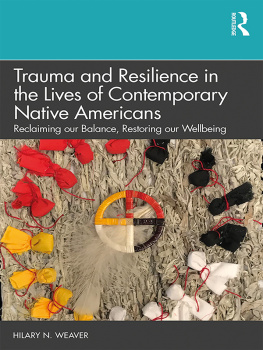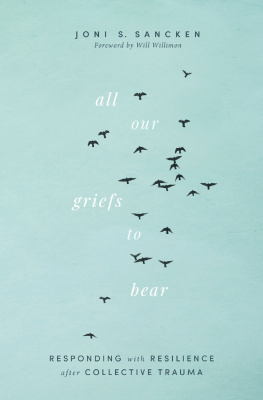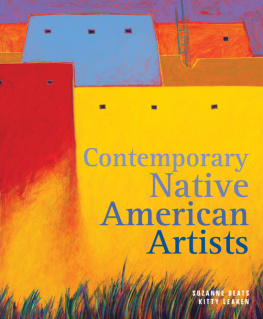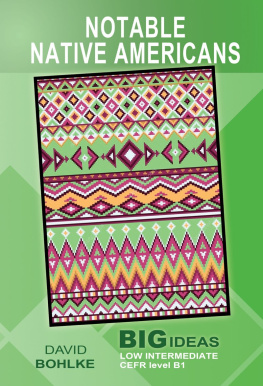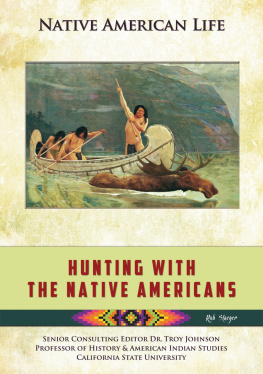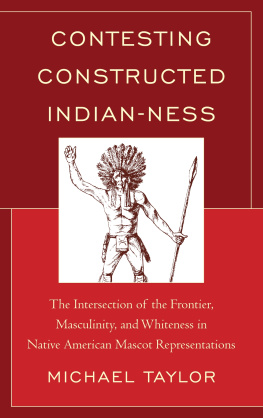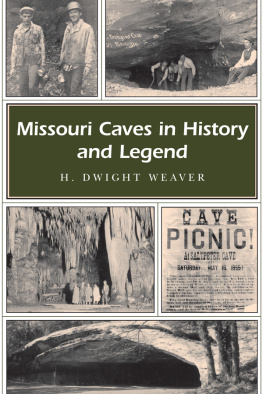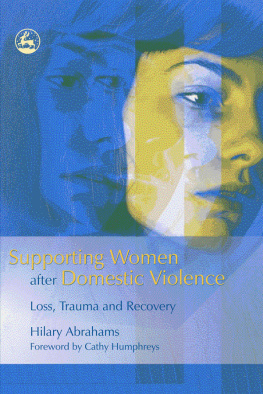TRAUMA AND RESILIENCE IN THE LIVES OF CONTEMPORARY NATIVE AMERICANS
Indigenous Peoples around the world and our allies often reflect on the many challenges that continue to confront us, the reasons behind health, economic, and social disparities, and the best ways forward to a healthy future. This book draws on theoretical, conceptual, and evidence-based scholarship as well as interviews with scholars immersed in Indigenous wellbeing, to examine contemporary issues for Native Americans. It includes reflections on resilience as well as disparities. In recent decades, there has been increasing attention on how trauma, both historical and contemporary, shapes the lives of Native Americans. Indigenous scholars urge recognition of historical trauma as a framework for understanding contemporary health and social disparities.
Accordingly, this book uses a trauma-informed lens to examine Native American issues with the understanding that even when not specifically seeking to address trauma directly, it is useful to understand that trauma is a common experience that can shape many aspects of life. Scholarship on trauma and trauma-informed care is integrated with scholarship on historical trauma, providing a framework for examining contemporary issues for Native American populations.
It should be considered essential reading for all human service professionals working with Native American clients, as well as a core text for Native American studies and classes on trauma or diversity more generally.
Hilary N. Weaver, DSW (Lakota) is a Professor and Associate Dean for Academic Affairs in the School of Social Work, University at Buffalo (State University of New York). She received her BS from Antioch College in social work with a cross-cultural studies focus and her MSW and DSW from Columbia University. Her teaching, research, and service focus on cultural issues in the helping process with an emphasis on Indigenous populations. Dr Weaver received funding from the National Cancer Institute to develop and test a culturally grounded wellness curriculum for urban Native American youththe Healthy Living in Two Worlds program. She is a member of NASW and CSWE, and currently serves as President of the Indigenous and Tribal Social Work Educators Association (formerly American Indian Alaska Native Social Work Educators Association). Dr Weaver has presented her work regionally, nationally, and internationally, including presenting at the Permanent Forum on Indigenous Issues at the United Nations in 20052008 and 20132018.
First published 2019
by Routledge
2 Park Square, Milton Park, Abingdon, Oxon OX14 4RN
and by Routledge
711 Third Avenue, New York, NY 10017
Routledge is an imprint of the Taylor & Francis Group, an informa business
2019 Hilary N. Weaver
The right of Hilary N. Weaver to be identified as author of this work has been asserted by her in accordance with sections 77 and 78 of the Copyright, Designs and Patents Act 1988.
All rights reserved. No part of this book may be reprinted or reproduced or utilized in any form or by any electronic, mechanical, or other means, now known or hereafter invented, including photocopying and recording, or in any information storage or retrieval system, without permission in writing from the publishers.
Trademark notice: Product or corporate names may be trademarks or registered trademarks, and are used only for identification and explanation without intent to infringe.
British Library Cataloguing in Publication Data
A catalogue record for this book is available from the British Library
Library of Congress Cataloging-in-Publication Data
A catalog record has been requested for this book
ISBN: 978-1-138-08828-3 (hbk)
ISBN: 978-1-138-08829-0 (pbk)
ISBN: 978-1-315-10996-1 (ebk)
Our ancestors did a Hansel and Gretel for us. Our job is to pick up the breadcrumbs and find our way home.
These words have echoed through my mind repeatedly since I heard them spoken at the Indigenous Voices in Social Work conference in Darwin, Australia, in 2015. Indigenous Peoples around the world and our allies often reflect on the many challenges that continue to confront us, the reasons behind health, economic, and social disparities, and the best ways forward to a healthy future. The simple statement above goes beyond an acknowledgement of contemporary challenges and provides an affirmation that what we need to move forward in a positive way is available to us.
This book draws on theoretical, conceptual, and evidence-based scholarship as well as interviews with scholars immersed in Indigenous wellbeing, to examine contemporary issues for Native Americans. It includes reflections on resilience as well as disparities. In recent decades, there has been increasing attention on how trauma, both historical and contemporary, shapes the lives of Native Americans. Indigenous scholars urge recognition of historical trauma as a framework for understanding contemporary health and social disparities. The multigenerational grieving associated with massive collective trauma leaves a lingering sadness that continues to envelop many Native people (Peacock, 2011).
Accordingly, this book uses a trauma-informed lens to examine Native American issues with the understanding that even when not specifically seeking to address trauma directly, it is useful to understand that trauma is a common experience that can shape many aspects of life. Scholarship on trauma and trauma-informed care is integrated with scholarship on historical trauma, providing a framework for examining contemporary issues for Native American populations.
While the primary focus of this book is on Native Americans, Indigenous Peoples in various parts of the world share commonalities in their sense of rootedness in their traditional territories and histories of colonization and dispossession. The boundaries that define the United States divide tribal territories and split communities and families. Based on these imposed boundaries, different citizenship statuses were conferred on members of some Indigenous communities. Thus, who is considered Native Americanrather than Aboriginal Canadian or Indigenous Mexicanis arbitrary. Indigenous Peoples transcend national boundaries.
While many people have strong preferences, there is no clear consensus on the use of various labels, such as Native Americans, American Indians, Indigenous Peoples, First Nations Peoples, and Aboriginal Peoples. Some terms are more common in some regions. For example, First Nations and Aboriginal are familiar terms in Canada; Aboriginal is commonly used in Australia; Native American is commonly used in the United States (particularly in regions like the Northeast); and American Indian is also commonly used in the United States (particularly in regions like the Southwest). Historically, the US federal government has primarily used the terms Indian and American Indian.
Throughout this book, when referring to the Native people of the United States, the terms Native American and American Indian are used interchangeably. The original term used is preserved in quotes. Indigenous may refer to any original inhabitants, regardless of current national boundaries, including people in the United States. It is important to note that, following significant activism, the United Nations has recognized the importance of Indigenous Peoples (collective entities) and not simply Indigenous people (multiple individuals). Therefore, throughout this text, capitalization is used to recognize this status.
The importance of understanding trauma
The prevalence of trauma across all the United States, regardless of age, gender, socioeconomic status, race, ethnicity, or sexual orientation, has led to its recognition as a major public health concern (SAMHSA, 2017). While trauma is common across populations, it has a disproportionate impact on some populations. Indigenous people, poor people, and populations of color are at particular risk of trauma exposure (SAMHSA, 2017). In the case of Native Americans, there may also be interplay between elements of Indigenous cultures and trauma exposure that influence the impact of trauma and its sequelae (Brave Heart et al., 2012; Evans-Campbell, 2008; Vernon, 2012).

